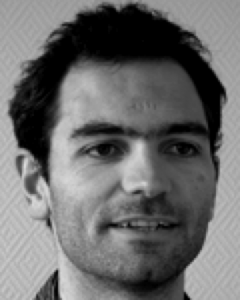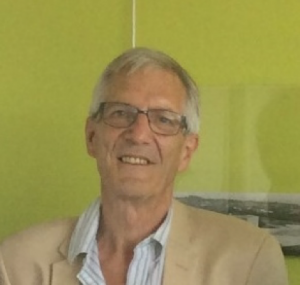STAPS is the acronym for the Science and technology of physical activities and sports (Science and Techniques in Sports and Physical Activity) and is published through an initiative of the French Association for Research in Sport and Physical Activity (ATRAPS). This multidisciplinary Francophone journal publishes original academic research on physical activities and sport in the field of human and social sciences. For some 30 years, STAPS’s mission has been to encourage scientific analysis of the practice, institutions, and actors in sport and/or physical education. An international scientific journal with its own reading committee, STAPS publishes articles in both French and English by Francophone researchers from all over the world. Each section editor uses a network of experts for double-blind peer review. STAPS distributes high-level research, promoting the scientific nature of all fields concerned, and encourages the publication of innovative work. Its International Editing Committee aims for parity between women and men, and extends over seven scientific sections.
For the first time in its history STAPS has published a bilingual edition namely issue 114 published in the Autumn of 2016 – Sport Coaching: Historical and Cultural Perspectives (Part 1). Director of the journal Professor Christian Vivier of the Université de Franche-Comte, Besancon and Assistant Director Julien Fuchs, Associate Professor at the University of Western Brittany were delighted to have the opportunity to preside over this innovative and challenging special issue. The French/British editorial double-act of Professors Jean-François Loudcher and Dave Day produced a well-balanced spread of French and British authors for the project as well as facilitating the all-important translation and proofreading work. The inherent demands of implementing a bilingual issue were intense and the commitment required from Loudcher and Day significant, but they proved equal to the task. The results can be seen in two consecutive, bilingual issues (numbers 114 and 115). This novel way of looking at the historical and cultural perspectives of sports coaching, as seen in in this excellent project is sure to contribute to the international prestige of its authors and of STAPS itself. The management and editing committee of STAPS congratulated those responsible for the initiative and very much hoped that this would be just the beginning and that many subsequent bilingual issues would be forthcoming.
- Professor Christian Vivier
- Julien Fuchs
Part 1, issue 114 consists of a two part introduction written from the national perspectives of both Loucher and Day. Professor Jean-François Loudcher, Université de Bordeaux, writes how, after working with Dave Day, Professor of Sports History, MMU Cheshire, the two found themselves questioning the notion of sports coaching and particularly on the meanings that the term holds. Coaching it seems can be interpreted differently with its meaning variously dependant on period, culture and country. The concept of ‘coaching’, in say Germany, Spain or the UK is in contrast to the way in which it is used in France and is therefore the topic of many provocative debates among academics.
In April 2016 the International Seminar organized in Besançon gave a welcome opportunity for researchers to explore the problem. It would appear that for the Anglo-Saxon historian the notion has existed for a long time, and thus perhaps allows for a greater understanding of the political and social differences among cultures about types of coaching. However in France sports historians, the majority of whom have a background in teaching PE, prefer to focus on the issue of the specificity of the coach in comparison to that of teachers of sport and trainers. This approach, Loucher considers, leads to a questioning of the relationship between athlete and coach/trainer/teacher/instructor.
- Professor Jean-François Loudcher
- Professor Dave Day
Day, in underlining some English perspectives on Sports Coaching suggests that the coaching role has been evident in sports-related activities since the Classical era and can be traced from then to contemporary times. However, the modern inferences of ‘coach’ and ‘coaching’ have definitions which are influenced by ever shifting parameters linked to social, cultural, temporal and geographical limitations. It was evident to Day during the Besancon conference that the way in which these terms were applied in Britain and France proved somewhat dissimilar, with the perception of ‘trainer’ and ‘coach’ having evolved in a divergent fashion, despite the geographic closeness the two European cultures.
To begin this special issue with a clarification of how ‘coaching’ has evolved and is understood from a British perspective seemed an excellent way forward. It clearly cannot be assumed that scholars on either side of the Channel have a shared vocabulary on the use of the word ‘coach’ or that the coaching role itself encompasses similar applied components. Without elucidation, any cross-cultural dialogue of ‘coaching’, either historically or indeed in a contemporary sense, could be confusing.
Coaches are constantly swayed by social and sporting structures, not to mention the systems within which they operate, therefore when societal relationships alter and the power equilibrium swings, changes occur in the organization and meaning of the coaching role in all cultural frameworks. However, ‘coach’ is largely understood in Britain as the individual responsible for the training of others towards an athletic contest and ‘coaching’ as preparing an athlete for competition. The latter more often than not has a technical component, such as the mastery of the various skills. While an optimum level of fitness is required by the athlete as well as the psychological aptitude to contend effectively and certain specialists could be responsible for each component, the ‘coach’ frequently assumes the responsibilities of technician/trainer/psychologist. So, while the degree to which the extent that this coaching role fluctuates lies within circumstances and cultural environments, the principal qualities of a successful coach, for Day, have been recognized as knowledge of an activity pooled with an ability for effectual communication.
STAPS Issue 114 contains the following papers:-
The Rise of the ‘Big Red Sports Machine’ and the Advent of Modern-Day Periodization
Nick Bourne: University of East London, United Kingdom
Legal Cultures and the Regulation of Coaching Practice: Different Jurisdictions, Different Approaches?
Steve Greenfield: School of Law, University of Westminster
Technical and Tactical Coaching in French Professional Football Teams Between 1942 and 1990
Laurent Grün: Université de Lorraine (Metz), professeur agrégé d’éducation physique et sportive
Fighting for legitimacy: The Zonal Marking Controversy among Spanish Football Managers in the Nineties
Carlos García-Martí: Facultad de Ciencias de la Actividad Física, UPM Madrid
From Russia with Love? Sixty years of proliferation of L.P. Matveyev’s concept of Periodisation?
Arnd Krüger: Prof. Dr. Arnd Krüger Lower Saxony Institute of Sport History
The issue can be accessed via the link http://www.cairn-int.info/journal-staps-2016-4.htm
Part 2, as Issue 115, which is to be published later this year, will contain the following papers
Sports Coaching a Central Concept to Science in Sport?
Professor Jean-François Loudcher: Université de Bordeaux
James Curran: Ethereal Scottish Athlete and American Coaching Legend
Iain Adams: Independent Researcher
“Training, Teaching, Coaching” : Physical Education and Sports Training as a Forerunner of Coaching in France 1940-1960
Serge Vaucelle
The “Human Training Stables” of Victorian America; Cultural Differences in Sports Coaching
Professor Dave Day: Manchester Metropolitan University, Cheshire
So as the Directors of the journal say – You like STAPS to surprise you and bring you top quality international research. Well, here you are!
Article © Margaret Roberts











